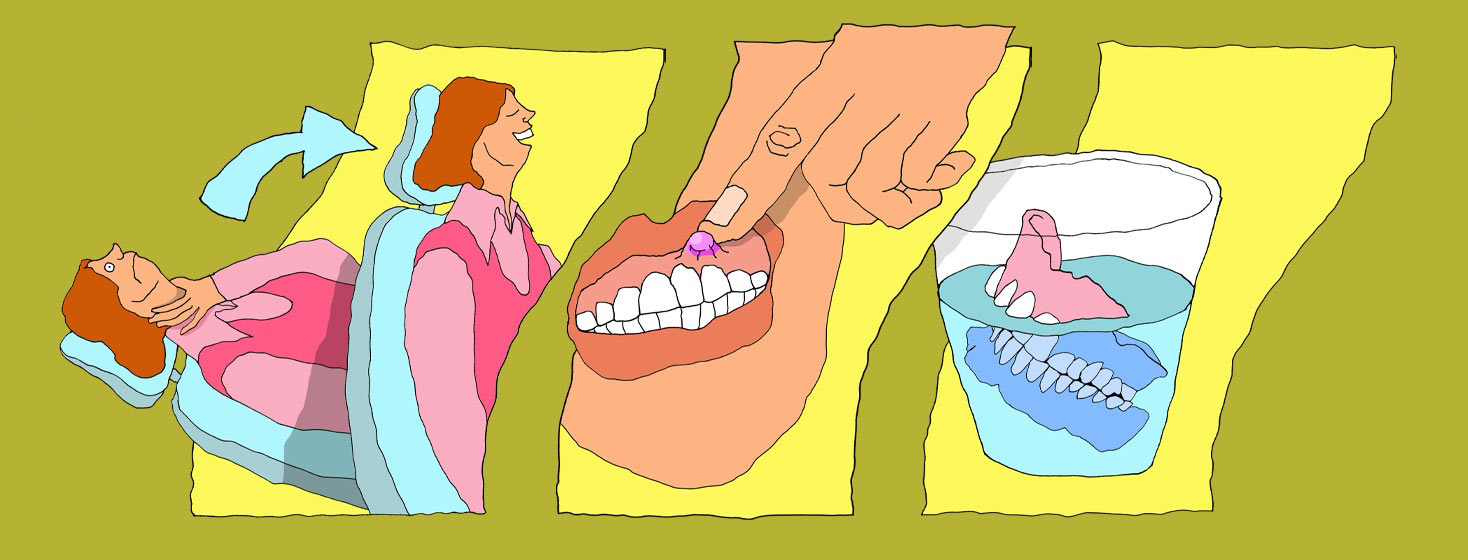Myasthenia Gravis and Dental Procedure Risks
For more information on dental care and how to prepare for an appointment, check out the article, "The Struggle with a Dental Visit."
What makes oral care such a big deal when you have myasthenia gravis (MG)? Unfortunately, because MG is an autoimmune disorder that causes muscle weakness, it can cause dental complications and make dental procedures more difficult.1
You should always discuss with your neurologist prior to any dental procedure. Your dental care may need to be as individualized as your medical care with MG. In this article I will talk about some special needs, concerns, and risks when it comes to dental procedures due to our disease.
Where should I be treated?
Those of us that are only mildly affected by MG can usually be treated in a general dental practice for routine care, but still check with your neurologist.1
If you are more severely affected by MG or have moderate to a large amount of anxiety, your neurologist may prefer you be cared for in the hospital. If respiratory muscles become affected, the end result could be a myasthenic crisis that requires emergency care.1
Chair positioning
For many treatments, it may help to be in more of a sitting position to allow for easier breathing and to avoid airway obstruction. When I’m lying on my back, I seem to have more secretions and I find it difficult to breathe at times.
This causes me to feel like I’m choking and I constantly have to clear my throat. Sometimes this happen even when lying in bed. I almost panic when I can’t reposition quick enough. Therefore, my exam and treatment may need to be done in a semi-sitting position.
Risk of infection
Infections, including oral infections, may worsen MG symptoms. So, what happens if you have MG and you have a tooth abscess? The fact that we sometimes get abscesses, shouldn’t be any different than someone else, should it? Well, maybe it shouldn’t, but it is! Here’s why ...
MG patients may be more susceptible to infection than people without autoimmune disease, especially if taking immunosuppressant drugs or prednisone. So, it is important we try to take care of ourselves and that includes regular dental exams and treatment.2-4
Dentures
Another consideration in managing our dental health is wearing dentures. We can’t always control whether we will need to wear dentures or not, but we should always try to maintain good dental habits and health so we can either delay the inevitable or prevent it.
For people with MG, Muscle weakness can impact our ability to properly retain both upper and lower dentures. Ill-fitting dentures may also exacerbate MG symptoms such as difficulty closing your mouth, tongue fatigue, dry mouth, dysphagia, and more. Therefore, we should do all we can to avoid needing to wear dentures.1
Doing our research
To say myasthenia gravis is a serious disease that requires specific modifications to our daily routines and medical treatments is an understatement. Even when our MG is controlled, we may have difficulties with procedure, dental or otherwise.
It’s imperative we not only do our research on how to prepare for dental exams and treatments and talk about the procedure with our neurologist, but also know what to do, should we have any complications or infections.

Join the conversation